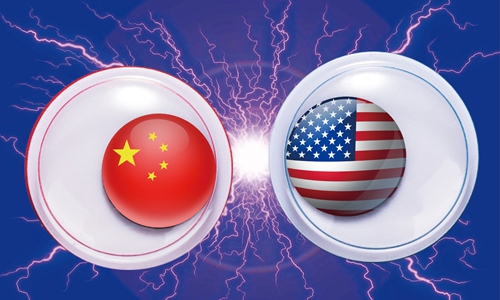US COVID-19 propaganda fuels anti-China sentiment
Source:Global Times Published: 2020/5/7 18:43:40

Photo: GT
Editor's Note:
"Repeat a lie often enough and it becomes the truth," this is how George Koo, founder and former managing director of International Strategic Alliances, board member of Freschfield's, a novel green building platform, describes US propaganda on COVID-19. Why is the US heating up its blame game against China amid the coronavirus pandemic, at a time when joint efforts between the two are needed more than ever? How have Chinese Americans' lives in the US been affected? Koo shared his views with Global Times (GT) reporter Li Aixin.
GT:Do you think US' smears against China over the coronavirus have already become the "truth" among Americans? What do you think are certain US politicians' biggest motivation behind repeating lies over the issue? Have they reached their goal?
Koo: Demonizing China has always been a popular pastime for politicians on both sides of the aisle, and their antics are faithfully reported in the mainstream media. The more outrageous accusations get more media attention and the media reception reinforces outrageous behavior because it becomes a cheap way to win political advantages. It becomes a self reinforcing cycle. American public's negative sentiment on China used to be under 40 percent. Now with the "blame everything on China" campaign, American people's anti-China feelings are approaching 70 percent according to Pew Research.
US President Donald Trump, assisted by Secretary of State Mike Pompeo, has concluded that casting blame on China is the best way to draw attention away from their incompetence in anticipating and dealing with the pandemic. They have been successful in convincing their core supporters that China is to blame. Even many of the middle of the road, neutral observers feel compelled to assign some blame to China as part of their criticism of the mishandling of the infection by the Trump administration. Even Democrats, the opposition party, find no incentive to defend China as they attack Trump for the mishandling of the epidemic.
It will take a leader with high integrity and political courage to begin to persuade the American people that China is not the adversary. I don't yet see anyone with that kind of profile in the American political landscape.
GT: You appealed that "the world's two biggest economies should join forces" to rein in the pandemic. It seems there are quite a few obstacles on the path toward collaboration between the two countries. What do you think is the biggest stumbling block that's hindering their bilateral cooperation?
Koo: The major stumbling block has been the need for an enemy to justify the huge military industrial complex that exists in the US. Washington has concluded that China is to replace the fallen Soviet Union. On top of that is the overwhelming attempt to blame China for the pandemic. Consequently there is virtually no trust between the two countries.
GT: You suggested that if the US continues on treating China as an adversary and decoupling from each other, there will be, "a losing future for the people of America, and for the world." Could you please further elaborate on this view?
Koo: Until Trump imposed tariffs and launched the trade war, the world was one integrated market. If he succeeds in breaking this into two markets, one revolving around the US and one around China, the two will not add up to the whole. It doesn't matter how much of their respective market each will occupy, the size of their economy will be smaller than it was.
GT: What (or which field) do you think could be the starting point of cooperation between China and the US against the current backdrop?
Koo: People's health is the highest priority and therefore cooperation on controlling the pandemic is the most important, and also most urgent.
GT: Some scholars tend to believe the pandemic will push major powers into an era of comprehensive confrontation. In your view, what would China-US ties look like in the post-pandemic era?
Koo: I believe the pandemic will damage the respective economy far more severely than any previous financial crisis except possibly the Great Depression. Under the current lack of leadership at the top, the destruction to the US economy will be greater than the current general expectation on Wall Street and K Street. If sanity returns to Washington, the focus would be on economic recovery and expenditures for confrontation should be lower in priority. If Trump is re-elected and his band of Rasputins continue to whisper aggression against China, then the madness will continue.
GT: Since the US started the blame game against China, how have local Chinese Americans' lives been affected? Do you think the effect is temporary or will it last long?
Koo: Since the coronavirus outbreak, the calling of "Chinese virus" by Trump and Pompeo and the multilayered charges against China, Chinese Americans and for that matter Asian Americans have become subjects of racial insults and physical abuse. Perpetrators tend to be the under-educated and poorly informed and are likely to be loyal Trump supporters. The increase in these hate induced incidences is not minor but several fold more compared from the past. Historically, every time Asian Americans were subject to racial hate crimes as a group, they have recovered by becoming more assertive and politically active.
I expect that it will happen again after the pandemic is over. Asian Americans are the fastest growing group, better educated than average, becoming more politically active and have learned that being called a "model minority" means nothing except that the racists will come to look for you when they need a scapegoat to beat up.
RELATED ARTICLES:
Posted in: VIEWPOINT